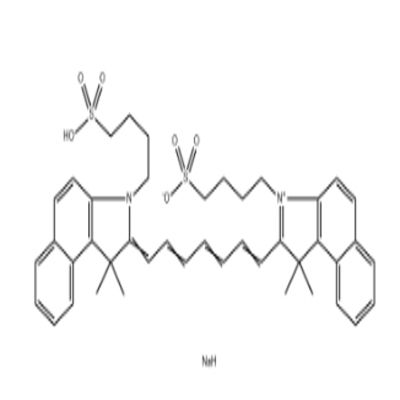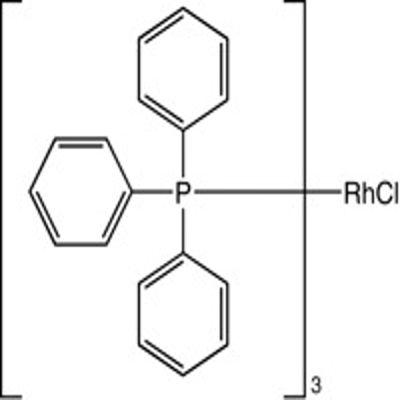-
Categories
-
Pharmaceutical Intermediates
-
Active Pharmaceutical Ingredients
-
Food Additives
- Industrial Coatings
- Agrochemicals
- Dyes and Pigments
- Surfactant
- Flavors and Fragrances
- Chemical Reagents
- Catalyst and Auxiliary
- Natural Products
- Inorganic Chemistry
-
Organic Chemistry
-
Biochemical Engineering
- Analytical Chemistry
- Cosmetic Ingredient
-
Pharmaceutical Intermediates
Promotion
ECHEMI Mall
Wholesale
Weekly Price
Exhibition
News
-
Trade Service
Cell therapy has shown good application prospects in the fields of tumor, immunological disease, nervous system disease, chronic disease and rare disease, and is one of the most popular tracks in biomedical research and development.
, cell therapy products have their particularity, in the development process can not be carried out in full accordance with the idea of small molecular compounds, to the traditional non-clinical research methods put forward a huge challenge.
November 11, 2020, the "China Toxicology Society Biotechnology Drug Toxicology and Safety Evaluation Professional Committee of the founding conference and the first academic conference" was held in Chengdu Wangjiang Hotel, at which experts discussed the issue in depth.
out of chaos, China's cell therapy gradually towards standardized cell therapy including immunocellular therapy, stem cell therapy, gene-editing cell therapy, etc. , the world has 3 CAR-T drugs, 18 stem cell products have been approved for market.
the development of cell therapy in China can be described as a twist and turn, experienced rapid development, but also suffered a serious blow.
In recent years, the state has issued a series of policies to gradually strengthen the supervision of the cell therapy industry, to clarify that CAR-T immunotherapy and other autologian cell therapies are regulated by NMPA in accordance with biological agents;
With the improvement of the policy, the domestic cell therapy development momentum is strong, this year has ushered in a major breakthrough, in February Fosun Kate submitted CD19 CAR-T cell therapy products Yikililunsai injection application for the Chinese market, june drug Ming Juno CD19 CAR-T cell therapy products Ricky Lunsey injection declaration In October, a clinical trial of the gene therapy product ET-01 (CRISPR/Cas9 gene-modified BCL 11A red line enhancer's self-built CD34 plus hematocyte injection) for blood transfusion-dependent type β thalassemia was accepted by CDE.
enterprises participate in the competition under the supervision of the two-track system? The introduction of these policies can better guide the development of the industry, but uncertainty and challenges remain.
Director of the Toxicology Department of the Safety Assessment Center of the Chinese Academy of Sciences recommends that enterprises conduct non-clinical studies in accordance with GLP to the maximum extent possible, and non-GLP should explain and evaluate its impact on reliability and integrity and overall safety.
of clinical and preclinical animal trials is related to regulatory models.
if clinical trials are approved according to the comprehensive animal test data required for drug declaration, and if they are non-drug routes, clinical studies may be approved for the record according to in-body information and some animal experiments.
, no matter which way you go, it's not easy to go.
In accordance with the drug declaration, although there are priority review and approval, breakthrough therapeutic drugs, conditional approval, special review and other accelerated listing procedures, but from research and development to market can still take several years and require significant financial support.
not drugs can only be carried out by qualified medical institutions, enterprises can not independently declare.
and the current policy only states that research can be carried out, and it is not clear how it will be clinically applied after the study.
addition to the high degree of uncertainty about local regulation and market access, the challenge of cell therapy lies in the strict protection and regulation of genetic resources and the lack of capacity of the medical service system to apply cell and gene therapy products.
, the current clinical direction of CAR-T treatment is mainly concentrated in blood tumors, and the target is relatively concentrated, its efficacy on solid tumors is still to be seen.
Cell therapy products non-clinical research points The Chinese Society of Toxicology Biotechnology Toxicology and Safety Evaluation Committee Chairman Yan Xiaobo pointed out that the particularity of cell therapy products in the so "living cell" products, involving relatively new techniques and methods;
there are many differences between cell products and non-clinical safety evaluation of traditional drugs.
traditional drugs pass the test, the question to be answered is the target organ, toxic characteristics, whether it can be restored, etc.
And the questions to be answered by cell therapy products are where to go, what to do, how to do, what to do, what the differentiation results are and how long to last, focusing on distribution/migration/home, cell fate and differentiation, single and multiple drug toxicity, immunogenicity/toxicity, tumor-causing/carcinogenicity, gene insertion mutations, reproductive toxicity tests, local tolerance tests, safety toxicology trials, etc.
also require special attention to cytokine storms (CRS) and off-target toxicity.
In addition, the "biologically active dose" of cells is affected by cell survival, proliferation, differentiation, tissue positioning, etc., and is uncertain, so the dose of traditional small molecule compounds is of great concern to cell products may not require a defined dose.
, Director of Preclinical Research, said that its gene-editing product ET-01 was not dose selective and specified only the minimum number of CD34 plus cells.
In addition, cell therapy products may require only one dosing in terms of the number of dosings and the dosing cycle, but the observation period after dosing may be long to assess whether cells can remain in the body for a long time and function.
Cell therapy is on the rise, and new technologies will lead to new breakthroughs in non-clinical evaluations that rely heavily on animal disease models, but human-sourced cells are heterogeneity to animals, the human response from animal reactions is not accurate enough, and the creation of special animal models is time-consuming, labor-consuming and expensive.
Traditional non-clinical research methods can not fully cope with the evaluation of the safety and effectiveness of cell therapy products, and it is necessary to establish evaluation methods based on modern medicine and life sciences, such as humanized animals, organoids and organ chips and other new technologies or will bring new breakthroughs.
cell therapy is on the rise, with the continuous improvement of policies, to promote enterprises, medical institutions continue to participate in the multi-party exploration of production processes and quality control methods, cell therapy will eventually be applied to clinical, benefit more patients.







